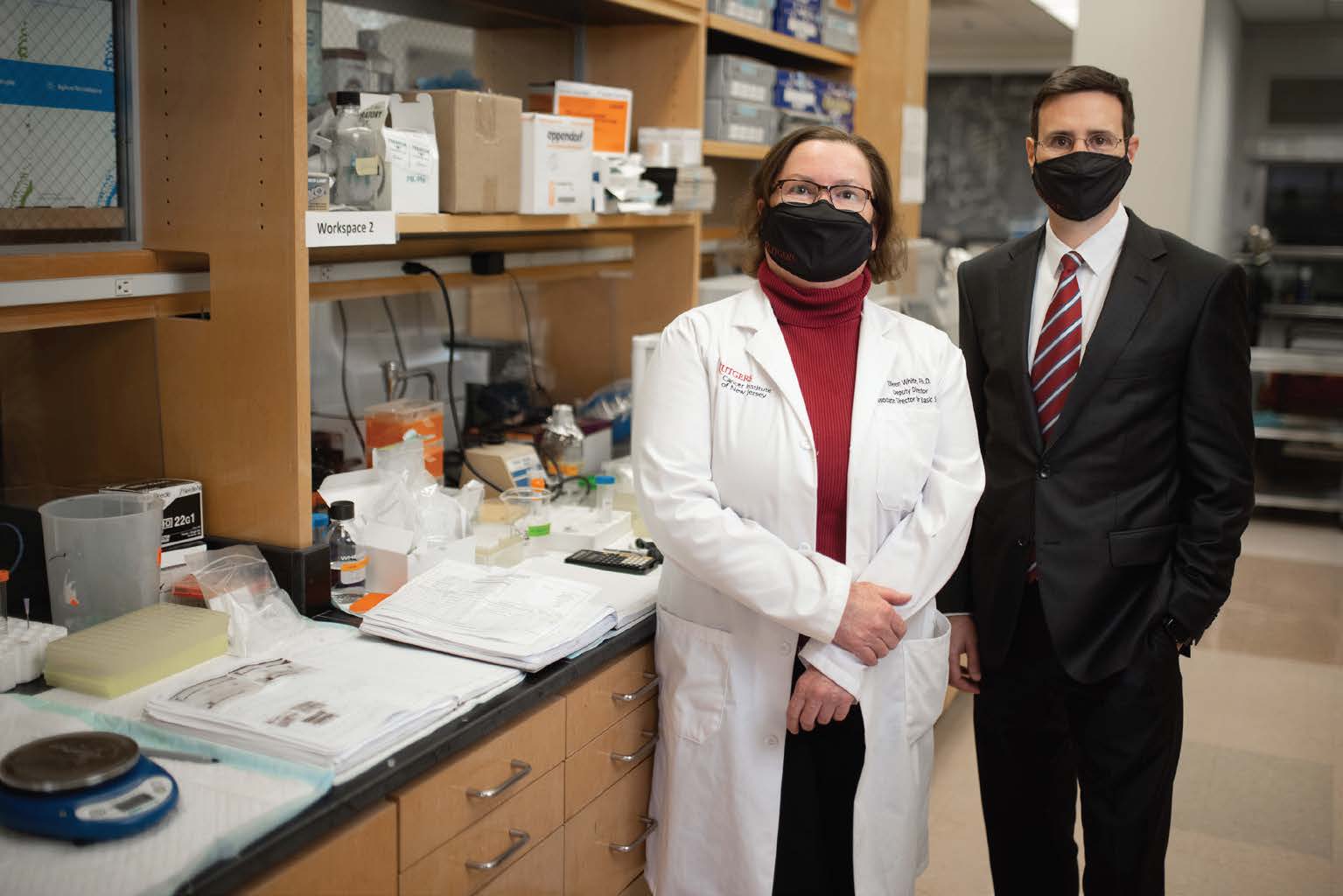
Eileen White, PhD, and Christian Hinrichs, MD, Co-directors of the Cancer Immunology and Metabolism Center of Excellence
For decades, the cornerstones of cancer treatment were surgery, chemotherapy and radiation. In recent years, immunotherapy has risen to the forefront.
“What’s remarkable about immunotherapy is the way it uses the immune system to specifically target cancer cells and not healthy cells,” explains Christian Hinrichs, MD, Chief of the Section of Cancer Immunotherapy and Co-director of the Cancer Immunology and Metabolism Center of Excellence at Rutgers Cancer Institute of New Jersey. Dr. Hinrichs, a world-class expert in cancer immunology and immunotherapy, was recruited from the National Institutes of Health to co-direct the center with Eileen White, PhD, Deputy Director and Chief Scientific Officer at Rutgers Cancer Institute.
“Immunotherapy has been a real game-changer for systemic cancer therapy for two reasons,” Dr. Hinrichs says. “First, it creates a very strong attack against cancer. Second, it has remarkably few negative side effects.”
However, some cancers respond well to immunotherapies, but others don’t respond at all. Why?
To answer that question, Rutgers Cancer Institute of New Jersey established the new Center of Excellence. The $50 million effort, fueled by an anonymous gift of $25 million, is poised to lead the immunotherapy revolution and transform cancer treatment.
“We are putting into place key expertise and facilities for ‘first in human’ clinical trials in immunotherapy and cell therapy,” Dr. Hinrichs explains.
The program is also serving a large and diverse patient population in New Jersey, Dr. Hinrichs notes. “That’s so important in cancer research,” he says.
New Connections
The Center of Excellence takes a novel approach by uniting its strengths in cancer immunology and metabolism under one umbrella. “Few, if any, institutions have this capability,” says Dr. White, Co-director of the center. Dr. White is a globally recognized expert in the study of metabolism — the way cells grow by using energy and nutrients for sustenance — and how it contributes to cancer. “By focusing our efforts on determining how tumor metabolism drives growth and suppresses the immune response, we can begin to develop new immunotherapies and make existing immunotherapies more effective,” she says.
The center is also focusing on the development of new cellular therapies for common types of cancer, a particular area of expertise for Dr. Hinrichs. “We are focused on the discovery and development of new T cell [immune system cell] therapies, particularly gene-engineering approaches that allow T cells to specifically and powerfully target tumors,” he says.
These new therapies are made in a Good Manufacturing Practices (GMP) facility, which follows stringent FDA regulations to ensure the quality of the manufactured therapies. “A GMP facility is absolutely critical for what we do,” says Dr. Hinrichs. “It enables us to produce personalized cell therapy products for each patient right here. We can actually discover and develop new cancer therapies at Rutgers Cancer Institute that no one can do anywhere else.” Many of these new therapies will be available to patients at Rutgers Cancer Institute and throughout the RWJBarnabas Health system.
Learn more about the Cancer Immunology and Metabolism Center of Excellence.